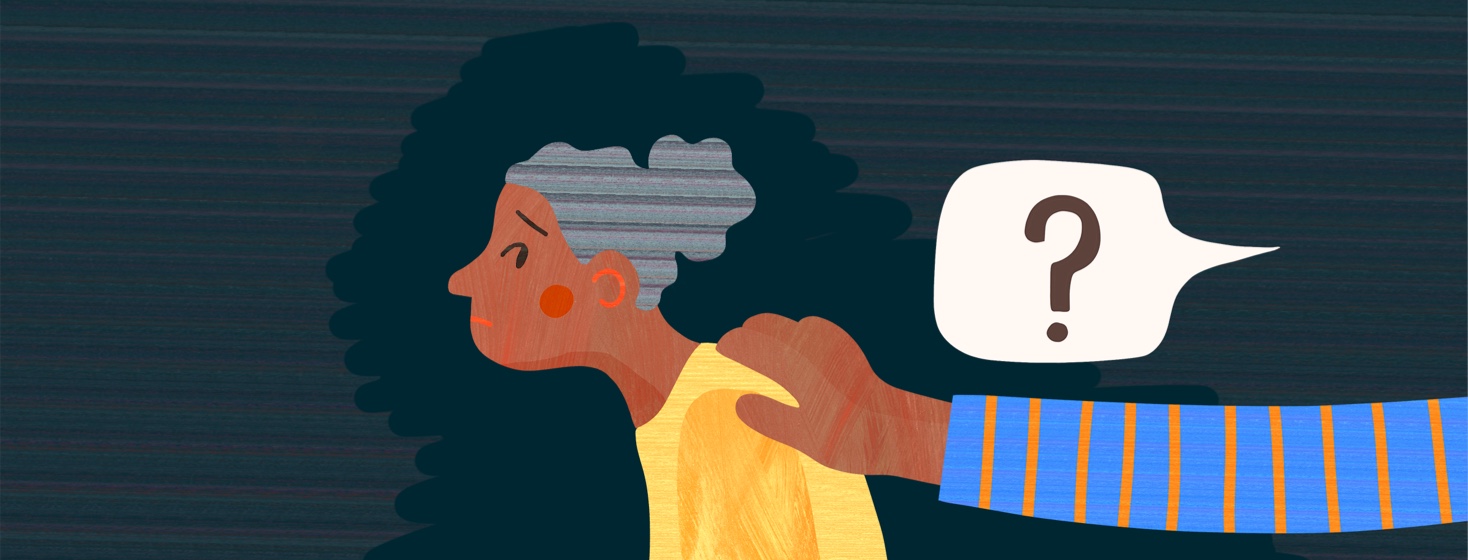A Depression Diagnosis: It's Not "All In Your Head"
Depression chooses its victims. The condition will rob them of their joy and steal every moment of their happiness.
When depression takes hold
As a young teenager, I could not understand why I could no longer participate in life's greatest pleasures. I would have a few delightful moments here and there. Then eventually, I would go for months in the midst of depression's grasp.
Depression would take hold of me and it would feel as if I were engulfed in a massive black fog with no way out. I would find myself sleeping for days at a time. As a former straight-A "go-getter," I sank deeper into this black hole as my grades suffered from the repercussions.
Insisting "I'm fine"
My friends began to worry. I even had friends who didn't really know me start to worry.
One afternoon while in high school, a cheerleader found me in the hallway during one of my numerous crying spells. I thought I was alone. I remember her putting her hand on my shoulders and asking me with genuine concern if I was okay. I told her what I told everyone else at that time. "I'm fine." I was not fine.
This or That
Did you experience depression in adolescence?
Was it all in my head?
I had all of the classic symptoms of depression at the time. However, my 17-year-old brain could not comprehend what depression was. I felt something inside of me was broken and couldn't be fixed.
Why was I so tired? Why did I have no interest in things I used to enjoy? I was so confused.
Deciding to reach out for help
I remember watching television one day and seeing the ad for the latest antidepressant, Cymbalta. The famous tagline, "Depression hurts, but you don’t have to" played out repeatedly in my mind.
I decided it was time to do something about my disabling symptoms. The time had come to see my doctor. I did not realize it yet, but it was one of the bravest things I had ever done.
Major depressive disorder diagnosis
I was so nervous once I arrived at the doctor's office. I remember nervously flipping through the magazines in her office, not knowing what to expect. I can recall thinking to myself, "What can I really expect? Will she just brush this off as normal teenage moodiness? Is this all in my head?"
I told my doctor about my depression. I was relieved when she told me this was an illness with a biological cause. "This sounds like major depressive disorder," she told me. She prescribed me Cymbalta, and told me that I will feel better in a few weeks.
Having a diagnosis was validating
I felt so validated after that. Before that appointment, I had no idea what to expect. I thought I would be perceived with judgement and shame.
I finally had a name for what had been troubling me for so long. I was not "broken" as I had thought. My doctor had explained that depression is an illness and should be treated as such. There was nothing to be ashamed of.
Getting proper treatment
In addition to the antidepressant, she also suggested I see a therapist once a week for talk therapy to process my feelings.
I eventually resumed my daily routine. My sleep schedule returned to normal. My grades improved. I started to do the things I used to enjoy, such as playing with our family dog. I slowly received my life back.
I became a "patient expert" on depression and learned everything I could on the subject. I even started to spend time with my friends again. They were happy to have me back.
Depression is not all in your head
Receiving validation towards a diagnosis can make a big difference. On the flip side, it can really hurt to hear the words, "You have (insert diagnosis)." It can be life-altering.
However, it can also mean that there is finally a plan. Validating one's experience or discomfort can prove to the person experiencing the discomfort that their symptoms are not "in their head" or they are making it up. It can help them get their life back. Validation can be a powerful thing.
After all of these years, I still live with major depressive disorder. However, I will never forget what it felt like to finally know that my symptoms were not "all in my head."
